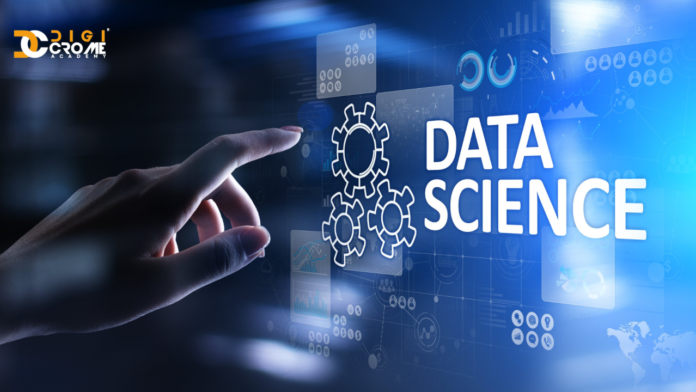In an age where information is the new gold, data science has emerged as the alchemist capable of turning vast data reserves into strategic insights and competitive advantages. This interdisciplinary field, which synergizes statistical analysis, artificial intelligence, and computational algorithms, is reshaping industries by offering smarter, faster decision-making capabilities. Here, we further expand on the core of data science, its transformative role across various sectors, and the strategies businesses can adopt to leverage its full potential.
Delving Deeper into Data Science
Data science is the heartbeat of modern analytical processes, driving innovations by uncovering hidden patterns and predicting future trends. It is a fusion of various disciplines aimed at understanding and analyzing data to make informed decisions. The process involves meticulous data cleaning, exploration, and modeling to solve complex challenges. It’s not just about handling data but making sense of it in a way that can significantly impact business strategies and outcomes. Data scientists are the navigators in this journey, blending their expertise in technology, statistics, and business to extract the most value from data. This capability to turn data into actionable insights is what sets data science apart, making it an invaluable asset for businesses.
Sector-Wise Transformation Through Data Science
Enhancing Healthcare with Data Science
The healthcare industry’s embrace of data science has led to breakthroughs in predictive diagnostics, operational efficiencies, and patient care personalization. By analyzing patient data and medical histories, healthcare providers can now anticipate health issues before they become critical, allowing for preventive care measures. Data science also facilitates the management of healthcare resources, ensuring that hospitals can serve their patients more effectively. Furthermore, the development of health apps and wearables that monitor vital signs is making healthcare more accessible and personalized.
Financial Services Revolutionized by Data Science
Data science has revolutionized the finance sector by introducing advanced fraud detection systems, personalized financial advice, and sophisticated investment strategies. These innovations enhance customer trust and satisfaction, leading to stronger client relationships. Furthermore, by employing predictive analytics, financial institutions can now anticipate market changes with greater accuracy, ensuring better investment decisions. The use of big data in finance also supports regulatory compliance and risk management, making the financial ecosystem safer and more reliable.
Retail Transformation Through Data Science

The retail sector has seen a significant transformation with the application of data science, especially in customer experience and inventory management. By analyzing shopping patterns and preferences, retailers can offer personalized shopping experiences through targeted advertisements and product recommendations. Moreover, data science optimizes supply chain operations, ensuring products are stocked based on predictive demand analysis, thus minimizing overstock and understock situations.
Manufacturing Optimizations via Data Science
Data science in manufacturing has led to the development of smart factories where predictive maintenance and optimized production processes significantly increase efficiency. By predicting equipment failures before they occur, manufacturers can prevent costly downtime. Additionally, data analytics enables better supply chain management by forecasting demand accurately, leading to more efficient production planning. The integration of IoT devices in manufacturing processes also generates real-time data, further enhancing operational efficiency.
Advanced Strategies for Data Science Utilization in Business
- Enhancing Data Literacy: Organizations should prioritize enhancing the data literacy of their workforce. Educating employees on the importance of data and its potential to drive business success is crucial. This not only involves training in data analysis tools but also fostering an environment where data-driven insights are valued and utilized in decision-making processes.
- Innovative Problem Solving: Leveraging data science for innovative problem-solving involves thinking beyond conventional analytics. It requires businesses to identify unique challenges and explore creative data-driven solutions. By doing so, companies can uncover new opportunities for growth and efficiency.
- Ethical Data Utilization: As businesses delve deeper into data science, ethical considerations around data usage become paramount. Companies need to establish robust data governance frameworks that ensure transparency, accountability, and privacy. This includes ethical AI practices that prevent bias in machine learning models and protect against misuse of data.
- Fostering Collaboration: The cross-functional nature of data science necessitates collaboration across different departments. Encouraging open communication and collaboration between data scientists, IT professionals, and business stakeholders is essential for the successful implementation of data-driven projects. This collaborative approach ensures that data science initiatives are aligned with overall business objectives and deliver maximum impact.
Conclusion
The integration of data science into business operations offers a pathway to innovation, efficiency, and a deeper understanding of market dynamics. As we have explored, its applications across various industries highlight the versatility and impact of data science in driving business growth and improving services. Businesses that successfully harness the power of data science will not only stay ahead of the competition but will also pave the way for new business models and strategies in the digital age.
FAQs
What makes data science indispensable in today’s business environment?
- Data science’s ability to process and analyze vast amounts of data for actionable insights makes it indispensable. It empowers businesses to make informed decisions, predict market trends, and understand customer behavior in unprecedented ways.
Can data science be applied in small-scale industries?
- Absolutely. Data science is scalable and can be tailored to fit the needs of small-scale industries. By focusing on specific challenges, small businesses can use data analytics to optimize operations, enhance customer engagement, and innovate their product offerings.
What are the challenges in adopting data science in traditional businesses?
- Traditional businesses may face challenges such as a lack of data infrastructure, data literacy, and resistance to change. Overcoming these challenges involves investing in technology, training, and cultivating a culture that embraces data-driven decision-making.
How does data science contribute to sustainable business practices?
- Data science contributes to sustainability by optimizing resource usage, reducing waste, and improving energy efficiency. Through predictive analytics and efficient data management, businesses can adopt more sustainable practices and reduce their environmental footprint.
